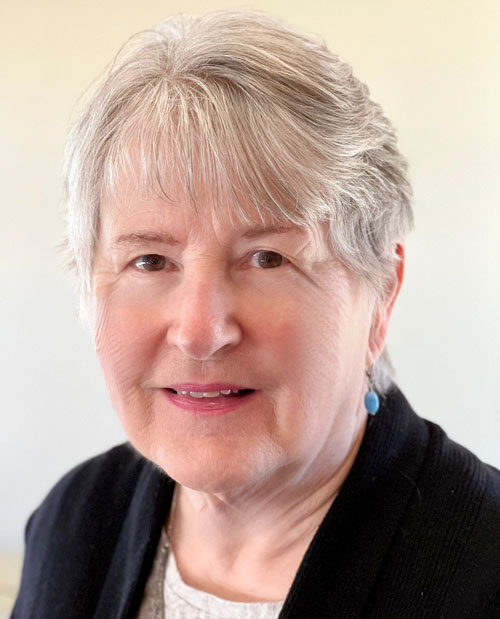
“If an institution is meeting QM Standards, the chances are good that the students can be successful. And that's what our job is: to make sure that continues to be true.”Mary Wells
It’s difficult to overstate the impact Mary Wells has had on quality assurance for online learning. As one of the Co-Principal Investigators of the Fund for the Improvement of Postsecondary Education (FIPSE) grant that led to the founding of Quality Matters, Mary is a pioneer who helped lay the groundwork for QM today. Now, 20 years after that trailblazing work began, QM will honor her with the 2023 Directors’ Award for Exceptional Service to Quality Matters.
Humble Beginnings
Mary was inspired to apply for the FIPSE grant when her home institutional network, MarylandOnline, sought a way to share online courses among its 19 member institutions. The problem was that these institutions had no way of ensuring that the courses being shared met their own internal standards of quality, which varied greatly from college to college. Mary saw an opportunity to use FIPSE grant funds to develop a set of standards to act as a codified definition of quality digital learning. “We had a broad range of skills and understanding,” says Mary. “Everybody was doing their own thing. And so the idea was to bring some sort of level playing field to this. We wanted to find out if we could find common ground and develop a rubric that everyone understood to be the standards that really were contributors to online course quality and to student success.”
Once they received word that their FIPSE grant had been awarded, Mary and her colleagues got to work building what would become the first QM Rubric. Interest in their idea spread quickly. “We were giving away copies of the original rubric and asking for feedback, and people were really excited about this. So they spread the word, too,” says Mary. “We went to all the big conferences, and at one point, we had to bar the door because we had so many people, the fire marshall was threatening to close us down.” No one on the grant committee had expected the idea to be so popular, but once they witnessed the demand firsthand, they knew they were onto something important.
The standards Mary and her colleagues were developing began to attract the attention of institutions around the nation. Meanwhile, they realized that the best way to build a sustainable and reliable process for quality assurance was to create a system of peer review. Through this process, educators could verify the quality of courses against the standards, improving the understanding of quality online learning for both reviewer and course designer. “We built this for faculty so that a faculty member could review a course or could develop a course with the highest standards possible in mind,” says Mary.
Placing Quality and Community First
Mary’s influence on QM as an organization is both foundational and pivotal. Even the name Quality Matters itself was born in a moment of inspiration as she stepped out of the shower. That QM became what it is today — a global community of thousands of educators working to improve learning experiences — is a major point of pride for her. “It's just exciting beyond belief,” she says. “It has been the highlight of my professional career.”
Mary is also quick to highlight everyone else who contributed in those early days, including Jurgen Hilke, Chris Sax, Julie Hamlin, Cynthia France, John Sener, Wendy Gilbert, Kay Kane, and others. According to her, QM has always been about community. “I wish I could take the credit for all this. But I was a part of this incredible community of people,” she says. “It was definitely a team effort. It only happened as it did because we took it all over the country and said, ‘what do you think about this?’ It was just a wonderful collegial experience that really, I think, made a difference then and continues to make a huge difference for the subscribers and the QM community.” Twenty years later, this initial spirit of collaboration remains a cornerstone of QM’s model, connecting educators through events like QM Connect and groups like the QM Instructional Designers Association.
Supporting Continuous Improvement
After the founding of QM as a program at MarylandOnline in 2006, Mary retired from academics, but remains involved in QM’s work as a facilitator mentor and coach. Mary contributed significantly to the inception of this role, and her early influence on the facilitation process can still be seen today. “I have always stayed involved at the professional development level, helping develop the content for courses and doing quite a bit of training, both online and in person,” she says. “So I have never really left QM.” In her time as a facilitator mentor, Mary has mentored hundreds of educators.
When asked about how she feels about the future of QM’s efforts toward quality assurance in digital learning, Mary is emphatic that this work is more important than ever. “Students everywhere should have an opportunity to learn and better their lives,” she says. “I strongly believe that what QM does impacts how that goes for them. If an institution is meeting QM Standards, the chances are good that the students can be successful. And that's what our job is: to make sure that continues to be true.”
